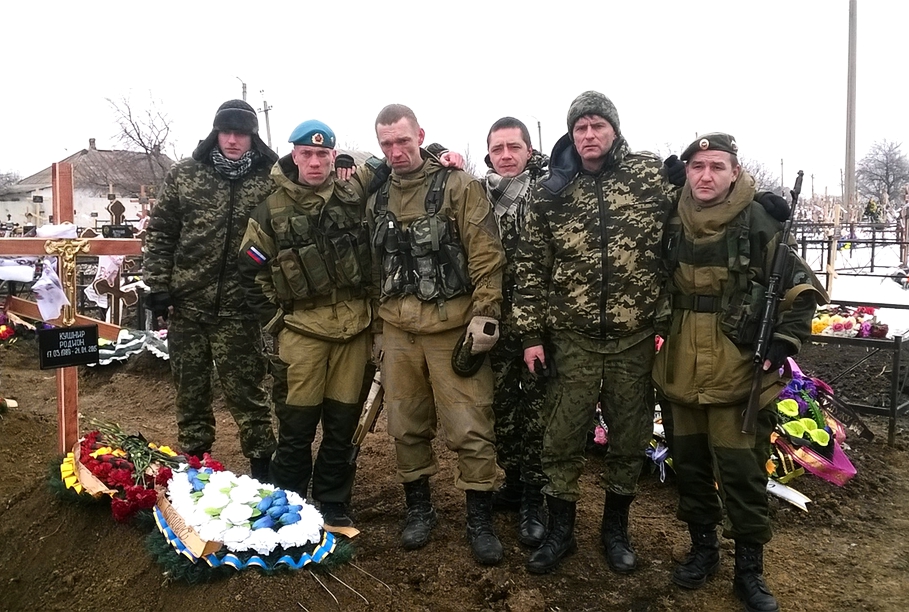Rodions Kušnirs was a Latvian citizen who was arrested in Russia for drug trafficking in 2009. He spent more than a year in prison in the town of Sebezh just across the border from Zilupe, Latvia. It was possibly in the Sebezh jail, suggests De Facto, that Kušnirs made the necessary contacts that allowed him to later find the shortest and quickest route to the war-torn eastern provinces of Ukraine.
On January 23 unconfirmed reports on social media indicated that Rodions Kušnirs had been killed by a bullet at the battle for Donetsk airport. He had been posting photos on his own social networking profiles from the field in Donetsk, some of which were obtained by De Facto.
Piecing together information from various unrelated sources, De Facto has determined that it was Russia through which Kušnirs managed to pass over into eastern Ukraine. An acquaintance of his named Jekaterina told De Facto “it was April or May when he said he was working his final days at the plant and that he would be going to Russia for a job.”
Another acquaintance, Vladimirs, recalled: “Rodions told me he’d earn way more in Moscow than here. I tried to find out what kind of work he was getting, but he avoided answering.” Kušnirs told some of his friends he was going to work “for a brother.”
However, to obtain the required visa, he needed to enlist the help of an unnamed Latvian member of parliament, according to Vladimirs. “He said someone would help him quickly get the visa, some deputy, but he didn’t say who.”
The only corroborated link between Kušnirs and Latvia’s extremist political scene is the radical movement called Russkaja zarja. Shortly before his departure Kušnir joined a Facebook discussion group to chat with leaders Illarions Girss and Jevgēnijs Osipovs, both of whom he later met in person.
Osipovs affirmed to De Facto that Kušnirs may have gained his ideological orientation through his activity in Russkaja zarja, however denied having assisted the budding foreign separatist with his travel arrangements.
Osipovs lauded Kušnirs for his participation in the fight in eastern Ukraine, calling it an “act of heroism.”
“He shared with me his plans, that he wanted to go. Explained that he can’t accept what’s going on there. In any case, what he did down there is what a real man, a hero would do.”
Asked if he may have influenced Kušnirs’ ideological state of mind, Osipovs affirmed: “It’s possible, yes. Our ideas have moved many to take action. I don’t think this is bad, this is good.”
As reported, authorities are anticipating lawmakers’ efforts to more clearly define the concept of “foreign fighter” in order to help legal systems of the EU member states fight against terrorism.































